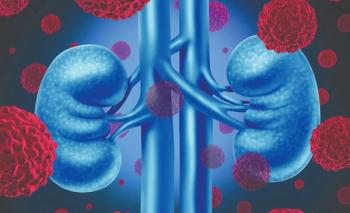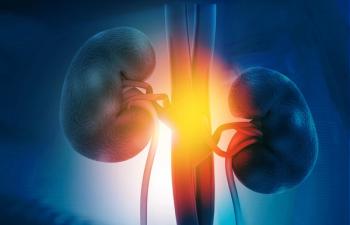
Quality of Life Maintained With Cabozantinib for Metastatic RCC
Metastatic RCC patients treated with cabozantinib had similar quality-of-life outcomes as those treated with everolimus, but had a longer time to deterioration.
Patients treated for metastatic renal cell carcinoma (RCC) with cabozantinib had similar quality-of-life outcomes as those treated with everolimus, but had a longer time to deterioration, according to the results of an exploratory analysis of the METEOR trial
Cabozantinib was approved for second-line treatment of patients with advanced RCC after prior antiangiogenic therapy based on the results of the phase III METEOR trial, which found that cabozantinib significantly improved progression-free survival (PFS), overall survival (OS), and objective response rate (ORR) compared with everolimus.
“The METEOR trial showed that quality of life declined initially and was generally maintained over time to a similar extent in both the cabozantinib and everolimus arms,” wrote David Cella, PhD, of Northwestern University Feinberg School of Medicine in Chicago, and colleagues. “The totality of results (including PFS, OS, and ORR) shows that cabozantinib has a favorable clinical benefit compared with everolimus for previously treated patients with advanced RCC.”
For this quality-of-life analysis, 658 patients in METEOR completed the 19-item Functional Assessment of Cancer Therapy–Kidney Symptom Index (FKSI-19) and the 5-level EuroQol (EQ-5D-5L) questionnaires at baseline and throughout the study. They also completed the 9-item FKSI–Disease-Related Symptoms (FKSI-DRS).
Through week 48 of the trial, the completion rates for the questionnaires remained at or above 75% in both arms of the trial. No differences were seen over time between the two study arms for the FKSI-19, the FKSI-DRS, or the EQ-5D-5L questionnaires.
Looking at specific FKSI-19 items, cabozantinib was associated with worse diarrhea and nausea, and everolimus was associated with worse shortness of breath.
“Because this was an open-label trial, these treatment differences may also be observed in routine clinical practice,” the researchers wrote. “Therefore, management should be directed toward mitigating these adverse effects for either agent.”
Time to deterioration was defined as the earlier of date of death, radiographic progressive disease, or a 4 or more point decrease from baseline in FKSI-DRS. Treatment with cabozantinib was associated with an improved time to deterioration compared with everolimus (5.5 vs 3.7 months; P < .001). According to the researchers, this improvement was driven mostly by events of death or radiographic disease progression rather than change in FKSI-DRS. Those patients with bone metastases specifically had a pronounced improvement in time to deterioration with cabozantinib compared with everolimus.
“The observed prolongation of time to deterioration in the cabozantinib arm further supports the overall clinical benefit of this agent in addition to improving PFS, ORR, and OS-albeit without a quality-of-life advantage,” the researchers wrote.
Newsletter
Stay up to date on recent advances in the multidisciplinary approach to cancer.




















































